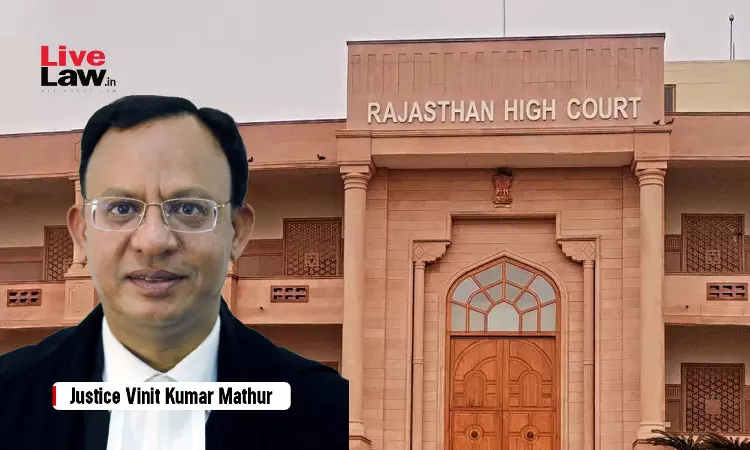- Home
- /
- High Courts
- /
- Rajasthan High Court
- /
- Termination After 15 Yrs Of Service...
Termination After 15 Yrs Of Service For Ineligibility Due To Having 3 Children Is Against Purpose Of Compassionate Appointment: Rajasthan HC
Nupur Agrawal
11 July 2025 7:30 PM IST
The Rajasthan High Court has granted relief to the petitioner who was terminated from service 15 years after being granted compassionate appointment, on the ground that he was ineligible for appointment for having 3 children. Considering that no concealment was made by the petitioner and the appointment happened after due diligence by State, the Court set aside termination.Underscoring...
The Rajasthan High Court has granted relief to the petitioner who was terminated from service 15 years after being granted compassionate appointment, on the ground that he was ineligible for appointment for having 3 children. Considering that no concealment was made by the petitioner and the appointment happened after due diligence by State, the Court set aside termination.
Underscoring the objective of compassionate appointment, the bench of Justice Vinit Kumar Mathur opined that it was a well-settled position that compassionate appointment polices shall not be enforced with undue rigidity. Disqualification for having three children would override the humanitarian objective of the scheme.
“In cases involving martyrdom or extraordinary hardship, a humane and flexible approach is constitutionally expected of welfare from State. The insistence on technical compliance, especially when there is no allegation of malafide or concealment, defeats the very object of such schemes. As observed by the Apex Court, the rules framed to serve humanitarian ends should not be used as instruments of injustice. Even assuming there was a technical breach, the same ought to have been viewed in the light of the petitioner's unique circumstances and long, blemish-free service.”
Petitioner's father attained martyrdom during Operation Pawan, while serving in the Indian Armed Forces post which he was appointed on compassionate grounds to the post of Lower Division Clerk in 2010. At the time of appointment, he had submitted all family details including information about his wife and three children.
In 2019, a complaint was filed about him being ineligible on account of three children which led to issuance of a show cause notice to him. When the authorities were not satisfied with the reply filed by him, he was terminated from service. Hence, the petition was filed.
It was the case of the petitioner that the appointment happened after due verification of documents. Further, even in the charges farmed, the petitioner was not charged for suppressing any information. The fact of non-suppression of any information was also taken note of in the enquiry report.
On the contrary, it was argued on behalf of the State that the appointment took place in violation of the Rajasthan Compassionate Appointment of Dependent of Deceased Government Servant Rules, 1996 as well as the Rajasthan Subordinate Offices Ministerial Service Rules 1999, on account of having three children.
After hearing the contentions, the Court made reference to certain Apex Court decisions to highlight the objective of compassionate appointment which was to enable the deceased's family to tide over the immediate crisis, and that such matters shall not be dealt with mechanically by the authorities but with sensitivity and compassion.
The Court considered that no suppression or misrepresentation was done by the petitioner and the appointment was given after due scrutiny by the State, and observed that terminating his services after an uninterrupted period of 15 years shall be manifestly unjust and excessively harsh.
“Such action would not only defeat the very object of compassionate appointment which is to provide immediate relief to the bereaved family, but would also cause irreparable harm to the petitioner,…The principle of natural justice, legitimate expectation, and equity must weigh heavily in favour of the petitioner, especially when no fraud or misrepresentation has been attributed to him.”
In this light, it was held that the petitioner could not be terminated at this stage, and accordingly the petition was allowed.
Title: Sagar Kumar v State of Rajasthan & Ors.
Citation: 2025 LiveLaw (Raj) 239



